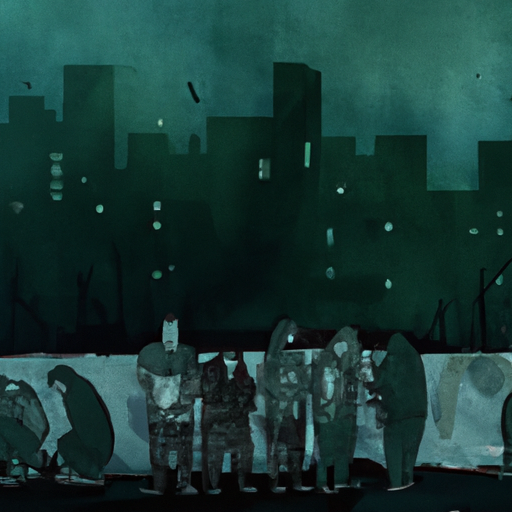Addressing the Tainted Drug Warning amid the Canadian Opioid Crisis
Recent developments in the Canadian opioid crisis have prompted renewed focus on the urgent need for intervention. At the epicenter of these developments is the Porcupine Health Unit’s issued “tainted drug warning”. This alarming development underscores just how significant the opioid crisis in Canada has become, in addition to highlighting the resultant issues within our communities, such as homelessness and escalating crime rates.
The Opioid Crisis, Explained
The opioid crisis can be attributed to several factors, most notably an increase in the prescription of opioid drugs, which are often addictive and can lead to misuse and dependence. The situation is further exacerbated through street drugs laced with fentanyl – a powerful opioid that is up to 100 times stronger than morphine. All this is coupled with a pressing homeless plight and aggressive criminal activities, making it a crisis that calls for immediate and strategic intervention.
The Repercussions of the Opioid Crisis
The brunt hit by the opioid crisis is immensely damaging and its ripple effects run deep within our society. Some ramifications include:
- Staggering death rates – Opioids-induced fatalities are mounting, overwhelming the health sector and leaving families, and communities in profound grief.
- Rising crime levels – As desperation sets in, crime rates rise, destabilizing our communities and making them less safe.
- Increasing homelessness – Drug dependency often leads to homelessness, effectively exacerbating a situation that is already delicate.
A Focus on Porcupine Health Unit’s Warning
The Porcupine Health Unit’s recent warning about a batch of toxic drugs in circulation is deeply concerning. The warning is a clear reflection of the widespread reach of the opioid crisis, as well as the increasingly dangerous nature of the drugs involved.
Strides Towards Combatting the Opioid Crisis
Whilst it may seem that the opioid crisis is gaining a stronghold, it’s crucial to recognize that concerted efforts are underway to curtail its advance. Governmental bodies, healthcare institutions and non-governmental organizations are using an array of interventions, from policy reform to rehabilitation programs, to fight the crisis. Concurrently, there’s a push for opioid class action, which can hold pharmaceutical companies accountable and potentially curb the accessibility and availability of these potent and lethal substances.
The Role of Naloxone
One such intervention in the fight against the opioid crisis is the increased availability of Naloxone. As a medication designed to rapidly reverse opioid overdose, Naloxone is emerging as a vital tool in the struggle to save lives. The Porcupine Health Unit has been promoting Naloxone as a lifesaver that should be readily available to anyone who might encounter a person overdosing.
Key Takeaways
Simultaneously tragic and complex, the opioid crisis has a vast impact, affecting individuals, families, and communities across Canada. The recent tainted drug warning from the Porcupine Health Unit serves as testament to this. Given the grave repercussions, tackling the crisis requires a multi-pronged approach:
- The need for stringent regulations on pharmaceutical companies.
- Initiating an opioid class action to seek justice for victims and their families.
- The necessity of making Naloxone readily available to combat opioid overdose instances.
- Addressing interconnected issues such as homelessness and crime.
By bringing awareness, educating our communities, and fostering strategic interventions, we can collectively work to mitigate the effects of the opioid crisis. This crisis may be daunting but it is not insurmountable. Our concerted efforts as civic and community leaders can make a difference, potentially saving lives and restoring the fabric of our communities.
